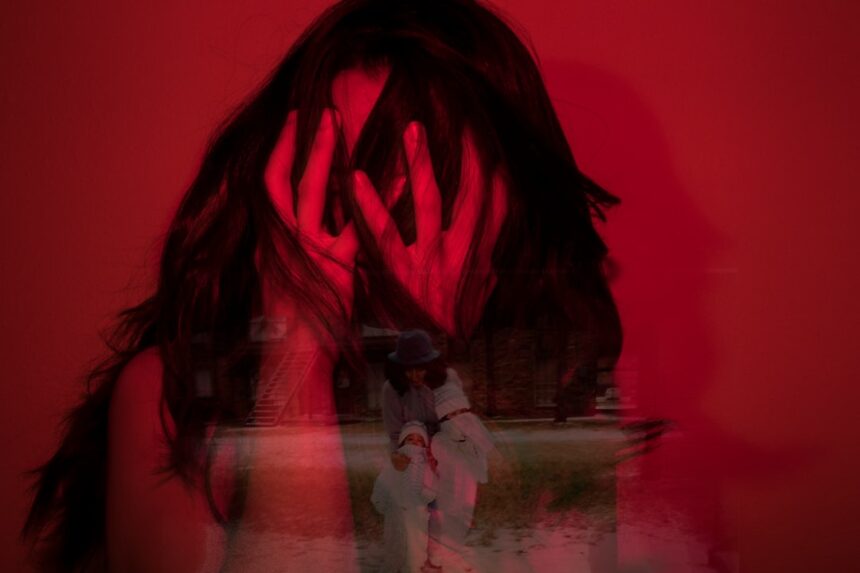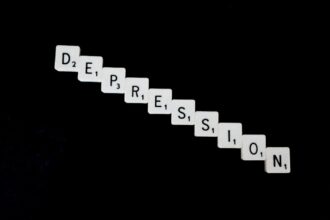Depersonalization is a psychological phenomenon that can leave you feeling detached from your own thoughts, feelings, or sense of self. Imagine looking at yourself in a mirror but feeling as if you are observing a stranger instead of your own reflection. This disconnection can be unsettling and may lead to a sense of unreality about your own existence.
You might find yourself questioning your identity, feeling as though you are living in a dream or watching your life unfold from a distance. This experience can be fleeting for some, while for others, it may persist for extended periods, significantly impacting daily functioning. The experience of depersonalization can be triggered by various factors, including stress, trauma, or anxiety.
It often occurs in conjunction with other mental health conditions, such as depression or post-traumatic stress disorder (PTSD). When you experience depersonalization, it can feel as though you are losing control over your own mind and body, leading to feelings of confusion and fear. Understanding depersonalization is crucial for recognizing its impact on your life and seeking appropriate help.
Key Takeaways
- Depersonalization is a mental health condition characterized by feeling detached from one’s thoughts, feelings, and body.
- Derealization is a mental health condition characterized by feeling detached from one’s surroundings, as if the world is unreal or distorted.
- Dissociative Identity Disorder (DID) is a complex psychological condition in which a person experiences two or more distinct identities or personality states.
- Symptoms of depersonalization and derealization include feeling like an outside observer of one’s thoughts or body, emotional numbness, and distorted perception of time and space.
- Causes and triggers of depersonalization and derealization can include trauma, stress, anxiety, and substance abuse, and treatment options may include therapy, medication, and stress management techniques.
What is Derealization?
Derealization is closely related to depersonalization but focuses more on the perception of the external world rather than the self. When you experience derealization, the environment around you may seem distorted or unreal. You might feel as if you are in a movie or that the world has taken on a dreamlike quality.
Familiar places may appear strange, and everyday experiences can feel surreal. This altered perception can lead to significant distress and confusion, making it challenging to engage with the world around you. The sensation of derealization can be disorienting and frightening.
You may find it difficult to connect with people or situations, leading to feelings of isolation. This condition often coexists with anxiety disorders and can be exacerbated by stress or trauma. Understanding derealization is essential for recognizing its effects on your life and finding ways to cope with these experiences.
By acknowledging the nature of derealization, you can begin to explore strategies for managing its impact on your daily life.
Understanding Dissociative Identity Disorder

Dissociative Identity Disorder (DID), formerly known as multiple personality disorder, is a complex psychological condition characterized by the presence of two or more distinct personality states or identities within a single individual. Each identity may have its own unique behaviors, memories, and ways of perceiving the world. If you have DID, you might find that different identities emerge in response to specific situations or stressors, leading to gaps in memory and a fragmented sense of self.
The development of DID is often linked to severe trauma during early childhood, such as physical, emotional, or sexual abuse. This disorder serves as a coping mechanism, allowing you to dissociate from painful experiences by creating alternate identities that can handle different aspects of your life. Understanding DID requires recognizing the complexity of human psychology and the ways in which individuals adapt to overwhelming circumstances.
It is essential to approach this disorder with empathy and awareness of its roots in trauma.
Symptoms and Signs of Depersonalization and Derealization
| Symptoms | Signs |
|---|---|
| Feeling detached from your body or mind | Blank or numb emotions |
| Feeling like an outside observer of your own thoughts or body | Difficulty connecting with others |
| Feeling like the world is unreal or dreamlike | Memory problems |
| Feeling emotionally disconnected from people you care about | Difficulty concentrating |
The symptoms of depersonalization and derealization can vary widely from person to person. In depersonalization, you may experience feelings of detachment from your body or thoughts, leading to sensations such as numbness or a lack of emotional response. You might also notice that your perception of time feels distorted, with moments stretching or compressing in ways that feel unnatural.
These experiences can lead to significant anxiety and confusion as you grapple with the reality of your existence. On the other hand, derealization symptoms often manifest as a sense of disconnection from your surroundings. You may perceive the world as foggy or dreamlike, where familiar places seem unfamiliar or distorted.
Sounds may feel muted or distant, and colors may appear less vibrant. These experiences can create a sense of alienation from reality, making it difficult for you to engage fully with your environment. Recognizing these symptoms is crucial for understanding your experiences and seeking appropriate support.
Causes and Triggers of Depersonalization and Derealization
The causes of depersonalization and derealization are multifaceted and can stem from various psychological and environmental factors.
If you find yourself in overwhelming situations—whether due to work pressures, relationship issues, or traumatic events—you may be more susceptible to episodes of depersonalization or derealization.
Additionally, substance use can exacerbate these feelings, particularly with drugs that alter perception.
If you have experienced significant trauma—such as abuse, neglect, or loss—you may find that these dissociative experiences serve as a coping mechanism to help you distance yourself from painful memories.
Understanding the triggers that lead to these feelings is essential for developing effective coping strategies and seeking appropriate treatment.
Diagnosis and Treatment Options for Depersonalization and Derealization

Diagnosing depersonalization and derealization typically involves a comprehensive evaluation by a mental health professional. During this process, you may be asked about your symptoms, medical history, and any traumatic experiences you have encountered. It’s important to provide honest and detailed information so that an accurate diagnosis can be made.
In some cases, these symptoms may be part of a broader dissociative disorder or co-occurring mental health conditions. Treatment options for depersonalization and derealization often include psychotherapy as the primary approach. Cognitive-behavioral therapy (CBT) can help you identify negative thought patterns and develop healthier coping mechanisms.
Additionally, grounding techniques—such as mindfulness practices—can assist in reconnecting with your body and surroundings when feelings of detachment arise. In some cases, medication may be prescribed to address underlying anxiety or depression that contributes to these dissociative experiences.
Living with Dissociative Identity Disorder
Living with Dissociative Identity Disorder can present unique challenges as you navigate daily life with multiple identities. Each identity may have its own preferences, memories, and ways of interacting with the world, which can create internal conflict and confusion. You might find it difficult to maintain relationships or hold down a job due to the unpredictability of identity shifts.
Understanding your condition is vital for developing strategies to manage these challenges effectively. Establishing a support system is crucial when living with DID. This may include mental health professionals who specialize in trauma-informed care, as well as friends and family members who understand your experiences.
Open communication about your needs and boundaries can help foster understanding and support within your relationships. Additionally, engaging in self-care practices—such as journaling or creative expression—can provide an outlet for processing emotions and experiences related to your identities.
Seeking Support and Resources for Depersonalization, Derealization, and Dissociative Identity Disorders
If you are experiencing depersonalization, derealization, or Dissociative Identity Disorder, seeking support is an essential step toward healing. Mental health professionals who specialize in dissociative disorders can provide valuable guidance and treatment tailored to your needs. Support groups—whether in-person or online—can also offer a sense of community where you can connect with others who share similar experiences.
In addition to professional support, numerous resources are available to help you better understand these conditions. Books, articles, and online forums can provide insights into coping strategies and personal stories from others who have navigated similar challenges. Remember that reaching out for help is a sign of strength; you do not have to face these experiences alone.
By seeking support and utilizing available resources, you can work toward reclaiming your sense of self and finding stability in your life once again.
In exploring the complexities of dissociative disorders, it’s essential to understand the nuances between conditions such as depersonalization-derealization disorder and dissociative identity disorder. An insightful article on this topic can be found on Unplugged Psych, which delves into the symptoms, causes, and treatment options for these disorders. For a comprehensive overview, you can read more about it on their




